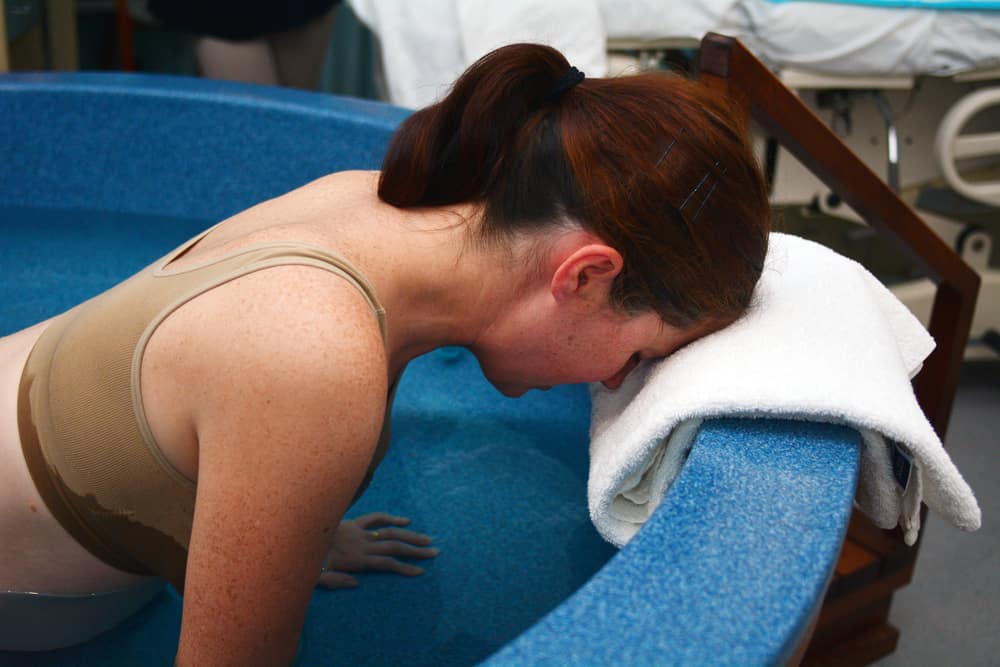Contents:
- Medical Video: 10 Warning Signs Your Heart Isn't Working Properly
- What are the benefits and risks of giving birth in water?
- Who can give birth in water?
- Who can't give birth in water?
Medical Video: 10 Warning Signs Your Heart Isn't Working Properly
Giving birth in water or also called water birth has become one of the birth methods that are loved by pregnant women, especially those who are still young. Many hospitals now provide a method of giving birth in water. But apparently, not all pregnant women can do it. Given that the method of giving birth in this way has its own benefits and risks.
What are the benefits and risks of giving birth in water?
Water helps relieve pain, that's the nature of water. So, giving birth in water makes the mother feel more comfortable. When the mother is comfortable, the stress hormone decreases. This allows the mother's body to produce endorphins which can reduce pain. Comfort can also make the mother focus more on labor than the pain she feels.
In addition, buoyancy of water also allows the mother to move freely to find the best position that is comfortable during childbirth. This buoyancy can also increase uterine contractions which are more efficient and better blood circulation, thus reducing pain. Water can also make the perineum more elastic and relaxed, so it can reduce the incidence of torn perineum and episiotomy.
However, each birth process must have its own risks, including water birth. Reporting from the American Pregnancy Association, water birth has the possibility of causing babies to breathe water, although the British Medical Journal already believes in the safety of water birth by 95%.
In the water birth process, ideally the baby will breathe air after his nose touches the air (when the baby is lifted to the surface of the water). Before this happens, the baby will still receive oxygen from the umbilical cord. However, if the baby's umbilical cord is loose or bent when the baby is lifted to the surface of the water, the baby can immediately breathe and breathe water.
In addition, another risk is water embolism in the mother, which can occur when water enters the mother's bloodstream. However, this event may be very rare.
Who can give birth in water?
Giving birth in water makes the mother more calm and comfortable when facing labor. However, not all mothers can give birth in water because the birth method is also full of risks. Pregnant women who can give birth by means of water birth are:
- Who can give birth normally
- Who already has a gestational age of more than 37 weeks
- Who only gave birth to one baby (not a twin pregnancy)
- The position of the baby is good in the last weeks of pregnancy (head position below) or the baby is not breech
- Childbirth signs have appeared or have taken place after being induced with prostaglandin
- The amniotic fluid ruptures just before labor or during the first stage of pregnancy and the amniotic fluid is clear of blood and the baby's first stool (meconium)
- You don't have any complications during pregnancy
- Normal blood pressure during and during childbirth
- Your baby is healthy and shows no signs of difficulty at birth
It's good before you decide to go through water birth, You discuss it first with your doctor.
Who can't give birth in water?
Giving birth does not always go smoothly as you expected. Sometimes, there are actions that need to be done quickly and right in the middle of the birth process for the good of mother and baby. Therefore, it is not arbitrary for mothers who can give birth by means of water birth. Those who have a risk of pregnancy are not advised to run a water birth. Anyone?
- Mothers who have medical conditions during pregnancy, such as gestational diabetes, high blood pressure, preeclampsia, heart disease, or uncontrolled epilepsy
- Mothers who have excess weight or movement problems that can make it difficult for you to get out of the birth pool
- Mothers who have a history of complications in the current or previous pregnancy, such as heavy bleeding during pregnancy or after childbirth
- Premature childbirth (age less than 37 weeks)
- Mothers who have herpes, because herpes can move to water easily. Or, have another infectious disease.












